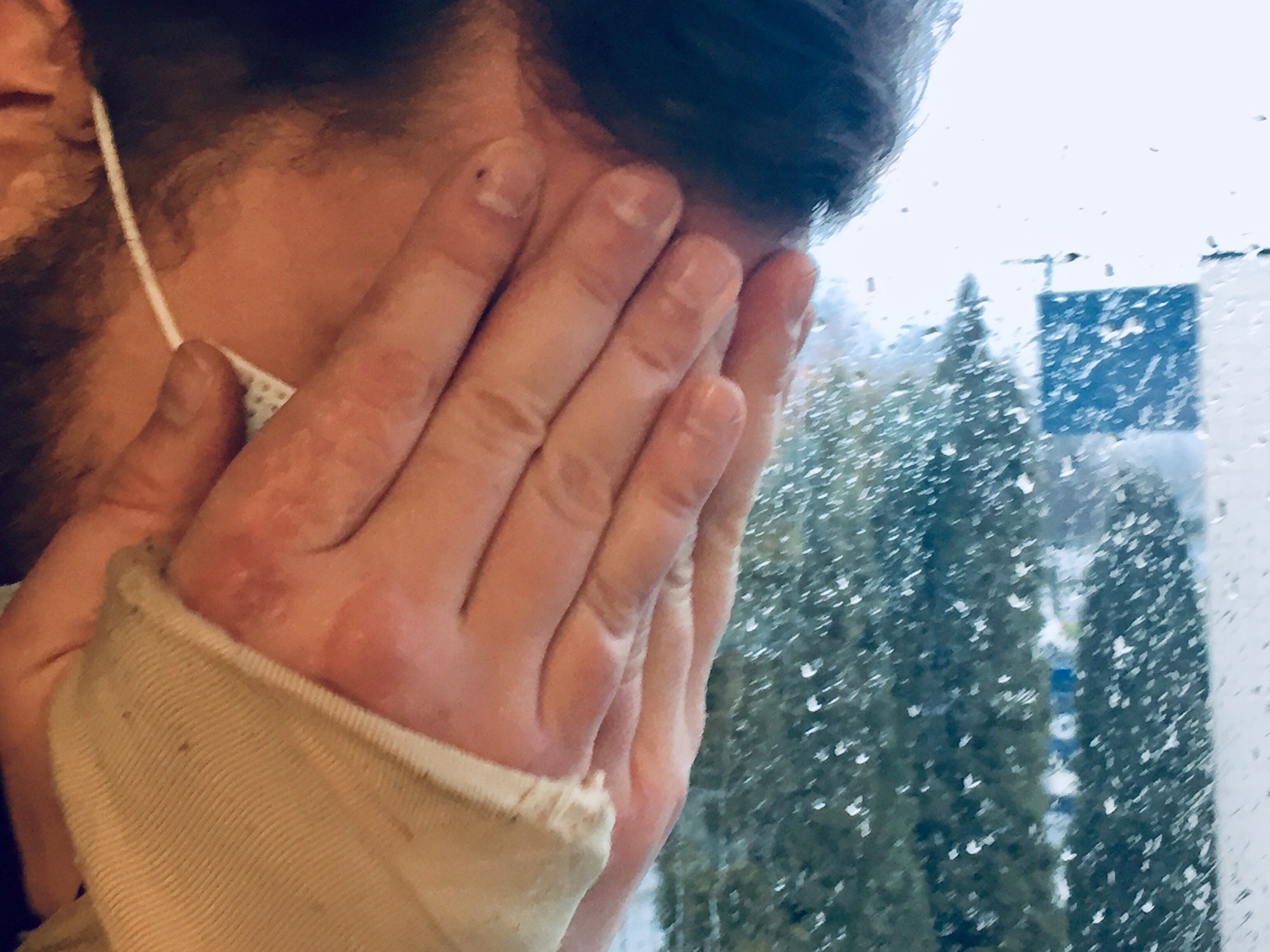This isn’t the most wonderful time of the year when you’re alone or isolated because of the pandemic.
So says Canadian Mental Health Association BC Division CEO, Jonny Morris, who knows, first hand, just much of a difference reaching out to a struggling friend or family member can have – especially around Christmastime:
“I myself have lived with depression throughout my life, and it was that conversation that made the biggest difference to when I was in my 20s,” Morris said.
“Someone asked how I was, and spent some time with me and that was the starting point for me of seeking out the help that I needed at the time, to start a journey of well-being and recovery.”
Morris noted that you can’t underestimate the impacts of isolation, disconnection, and loneliness.
“I think we see that with the experience of isolation within care facilities, folks who live alone, who aren’t able to engage with daily activities, all of those things need to be taken very seriously ” he added. “Hence reaching in, doing what we can to adhere to the public health guidelines, but try and do what we can to connect with people around us.”
He says people who are now working remotely because of COVID-19 also lose their sense of connection with others.
This holiday season will potentially pile on even more stress, with public health orders in place until the new year.
Gatherings will be smaller and being alone can feel especially glaring following 10 months of physical distancing and social disconnection.
Meanwhile, a recent survey shows the pandemic is taking a toll on our mental health.
Released from the Canadian Mental Health Association and the University of British Columbia, it found that 42 percent of B.C. respondents say their mental health has gotten worse since the start of the pandemic.
That number rises to 61 percent among people with pre-existing mental health and/or substance abuse problems.
Morris says at one-point, they saw a 100 percent jump in people being referred to their depression and anxiety care program, compared to last year.
He also noted a sharp increase in calls to crisis lines across the province.
Morris says now, more than ever, the key to helping yourself is reaching out for help when you need it.
He added that reaching out to them to a family member, friend, or colleague can make a world of difference.
Morris says that if you need help, you can call the Mental Health Support Line at 310-6789.
The province has tips for mental wellness during the holidays. They include:
- Reach out to someone who is isolated and alone – you may be surprised at how much joy it brings to both of you.
- Talk about it with others
- Keep up with routines. Try to maintain habits that support your positive well-being during the holidays. Eat well when you can, commit to regular physical activity and get plenty of sleep when possible.
- Try to take a moment for yourself. Prioritize yourself during the holidays by doing things you love and that make you feel calm and connected to what matters to you..
Mental-health supports in BC include:
- Province of B.C. mental-health supports page: http://gov.bc.ca/Covid19MentalHealthSupports
- B.C. COVID-19 mental health self-assessment tool – mental-health screening tests with a COVID-19 self-assessment tool: https://cmhabc.force.com/MentalHealthCheckIn/s/
- BounceBack – free online, video and phone-based skills-building program for seniors, adults and youth who are experiencing low moods, mild to moderate depression, anxiety, stress or worry: www.cmha.bc.ca/covid-19
- Counselling and mental-health services – a variety of mental-health services, including low- or no-cost community counselling programs: www.cmha.bc.ca/covid-19
- Crisis Intervention and Suicide Prevention Centre – confidential, non-judgmental, free emotional support for people experiencing feelings of distress or despair, including thoughts of suicide. Call 1 800 SUICIDE (784-2433) or visit: https://crisiscentre.bc.ca/
- First Nations Health Authority – comprehensive mental-health and cultural supports during COVID-19: https://www.fnha.ca/Documents/FNHA-COVID-19-Mental-Health-and-Cultural-Supports.pdf
- The KUU-US Crisis Response Service: 24-7, culturally aware, crisis support to Indigenous people in British Columbia. Call 1 800 588-8717 or visit: https://www.kuu-uscrisisline.com/
- Crisis services by region – a list of crisis supports and services by region. Find help near you: https://www.crisisservicescanada.ca/en/looking-for-local-resources-support/
Mental-health supports for youth, young adults and families:
- Foundry Virtual – provincewide virtual services with counselling, peer support, family support, groups and workshops via chat, voice or video calls for young people aged 12-24 and their caregivers. All services are free and confidential. Call 1 833 FOUNDRY (308-6379) or visit: https://foundrybc.ca/get-support/virtual/
- Here2Talk – confidential, free counselling and referral services by app, phone or online chat for all registered post-secondary students, 24 hours a day, seven days a week. Call 1 877 857-3397, or 1 604 642-5212 if you are a student calling from outside of Canada (international calling charges may apply).
- Ministry of Children and Family Development – the Ministry of Children and Family Development supports all children, youth and families in British Columbia to live safe and healthy lives and is responsible for providing programs and services to support child and youth mental health. A list of supports can be found at: https://news.gov.bc.ca/factsheets/child-and-youth-mental-health-supports
- Kids Help Phone – 24-7, immediate counselling, support, information and referrals. Youth can call 1 800 668-6868 or text TALK to 686868. Texting support for adults is available by texting TALK to 741741. Or visit: http://org.kidshelpphone.ca/
- Kelty Mental Health Resource Centre – free mental-health and substance use information, resources and peer support for B.C. parents, caregivers and families of children and youth. Call 1 800 665-1822 or visit: https://keltymentalhealth.ca/
Supports for seniors:
- BC211 – this service will take calls from seniors looking for help and those who would like to volunteer to help seniors in their community, including virtual or telephone visits: http://www.bc211.ca/
Support for front-line health-care workers:
Virtual peer support service and online resource hub – phone and text-based peer-support service: www.cmha.bc.ca/covid-19






